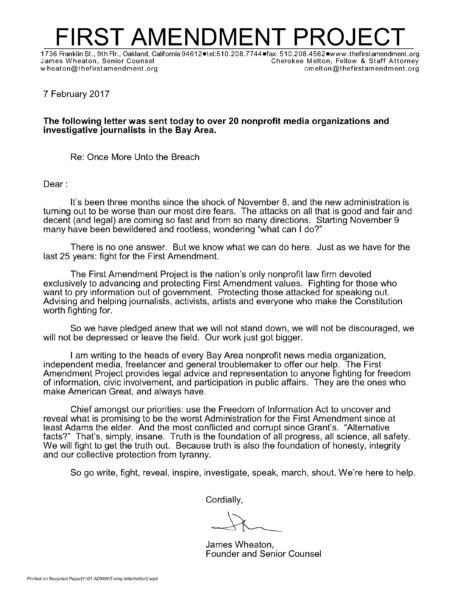On June 15, 2015, the American Civil Liberties Union of Southern California (ACLU-SC) and the Electronic Frontier Foundation (EFF) filed a Petition for Review in the California Supreme Court. The Petition comes after the Court of Appeal affirmed a Los Angeles Superior Court’s ruling that one week of Automated License Plate Readers (ALPRs) data is exempt from disclosure under the California Public Records Act, Cal. Gov. Code § 6250, et seq.
ALPRs are cameras, often mounted on police cars or fixed objects like light poles, that automatically and indiscriminately capture an image of every license plate that comes into view. ALPRs also record the time, date, and location of every car.
ALPR data is often compared against a list of plates for wanted vehicles, and the accumulated data can be searched by police in future investigations to identify past movements of drivers. One ALPR camera is capable of logging thousands of plates per hour. Because of the frequency of the scans, and the detail recorded, ALPR data can be used to track where ordinary citizens have been and, thus, where they are likely to go.
In order to understand and educate the public on the risks to privacy posed by ALPRs in Los Angeles, ACLU-SC and EFF sought documents from the Los Angeles Police Department (LAPD) and the Los Angeles Sheriff’s Department (LASD) related to ALPR use, including one week’s worth of data, pursuant to the California Public Records Act, Government Code section 6250 et seq. After LAPD and LASD denied their request, ACLU-SC and EFF filed a Petition for Writ of Mandate in Los Angeles Superior Court. Their petition was denied and they sought relief in the Court of Appeal, with the help of FAP and others writing amicus briefs in support of releasing the data. The appellate court upheld the Superior Court, and now, the ACLU-SC and EFF have petitioned the California Supreme Court to review the following issues:
(1) Does data collected by police using Automated License Plate Readers (ALPRs), that automatically and indiscriminately scan and record the license plate numbers and time, date and location of every passing vehicle without suspicion of criminal activity, constitute “records of …. investigations” that are exempt from the Public Records Act, Government Code section 6254(f)?;and (2) Does Prop 59 – the 2004 amendment to the California Constitution requiring “[a] statute, court rule, or other authority … be broadly construed if it furthers the people’s right of access, and narrowly construed if it limits the right of access” – require a more narrow interpretation of of the “records of …. investigations” exemption than was applied in the by the Court of Appeal and the Los Angeles Police Department and Los Angeles Sheriff’s Department in denying ACLU-SC and EFF’s public records request for ALPR data?
FAP, on behalf of the Society of Professional Journalists, Northern California Chapter, filed a letter in support of the petition and urged the Court to grant review of these important issues concerning transparency around the government’s mass surveillance and collection of data on all citizens, regardless of any suspicion of criminal wrongdoing. On July 29, 2015, the Supreme Court granted the petition.

